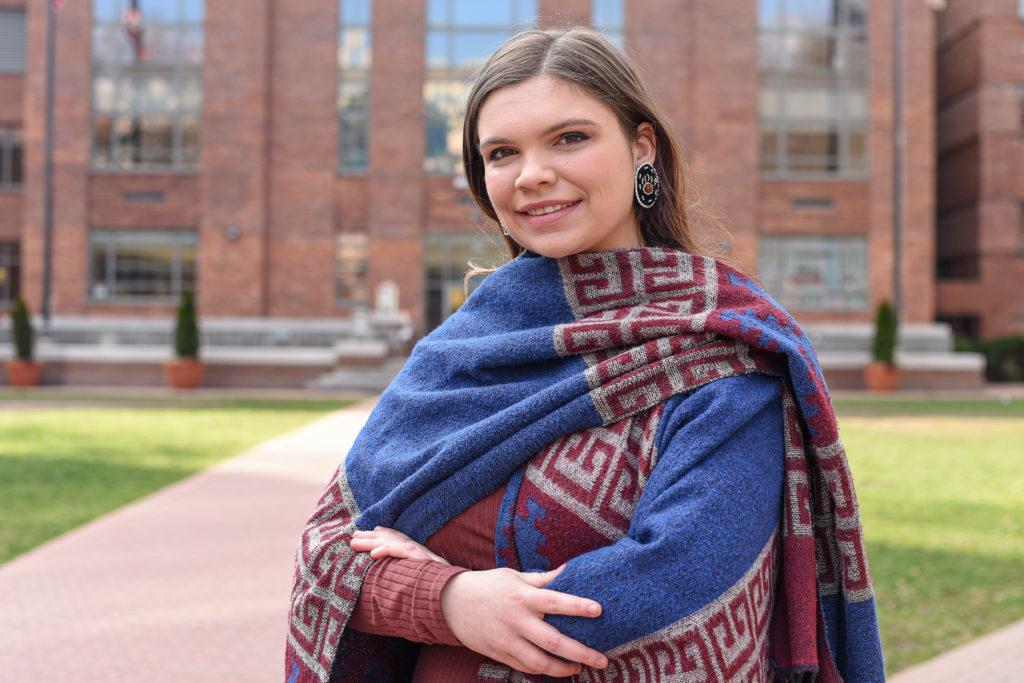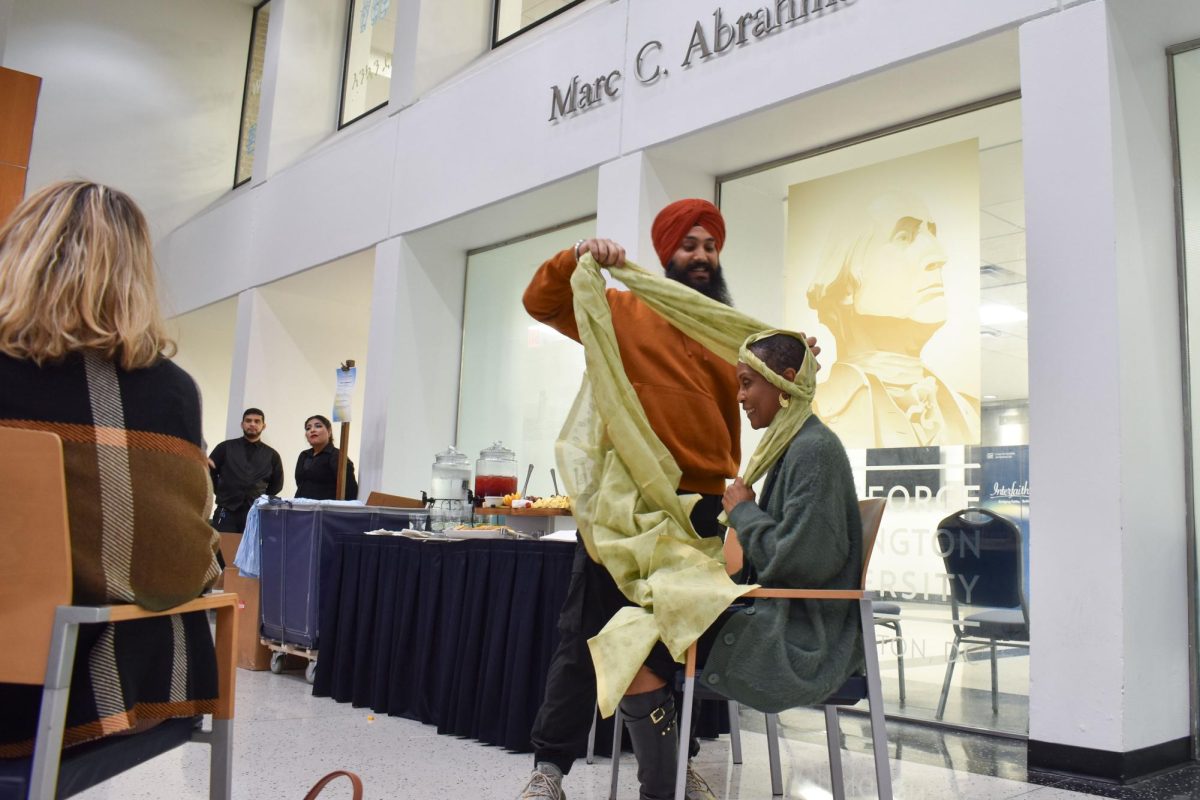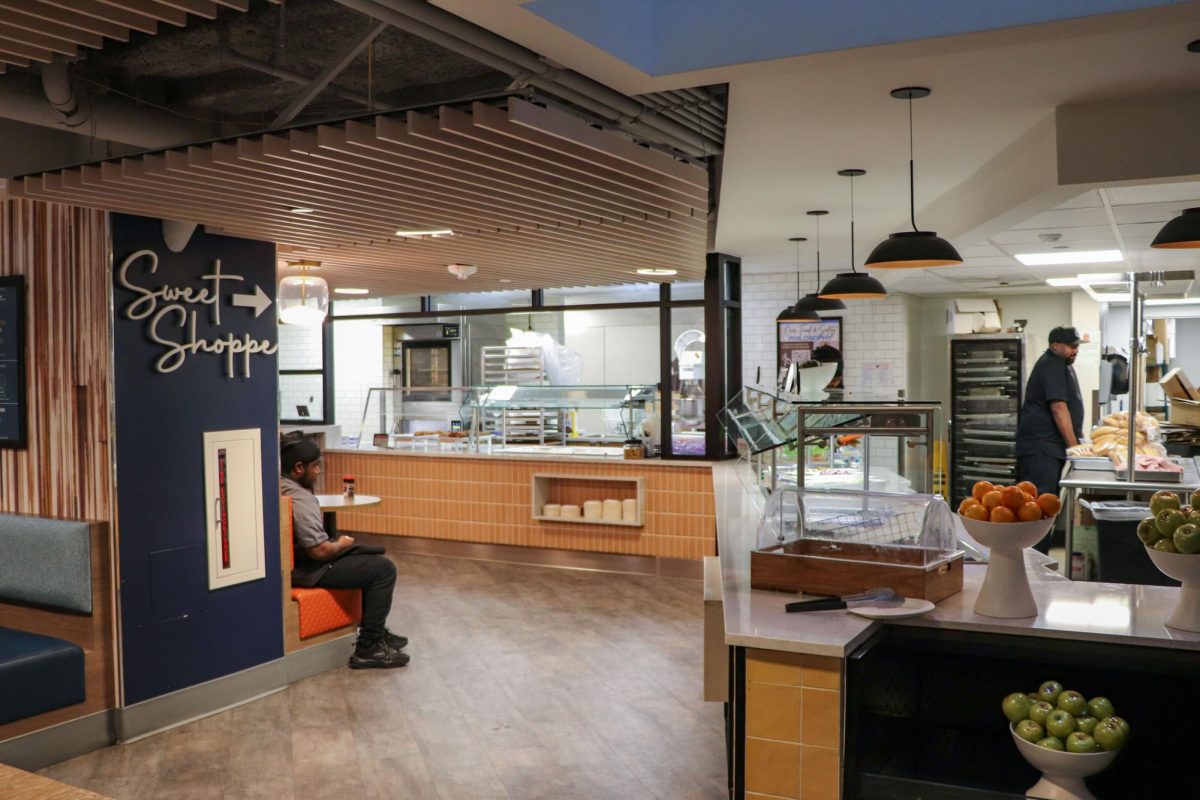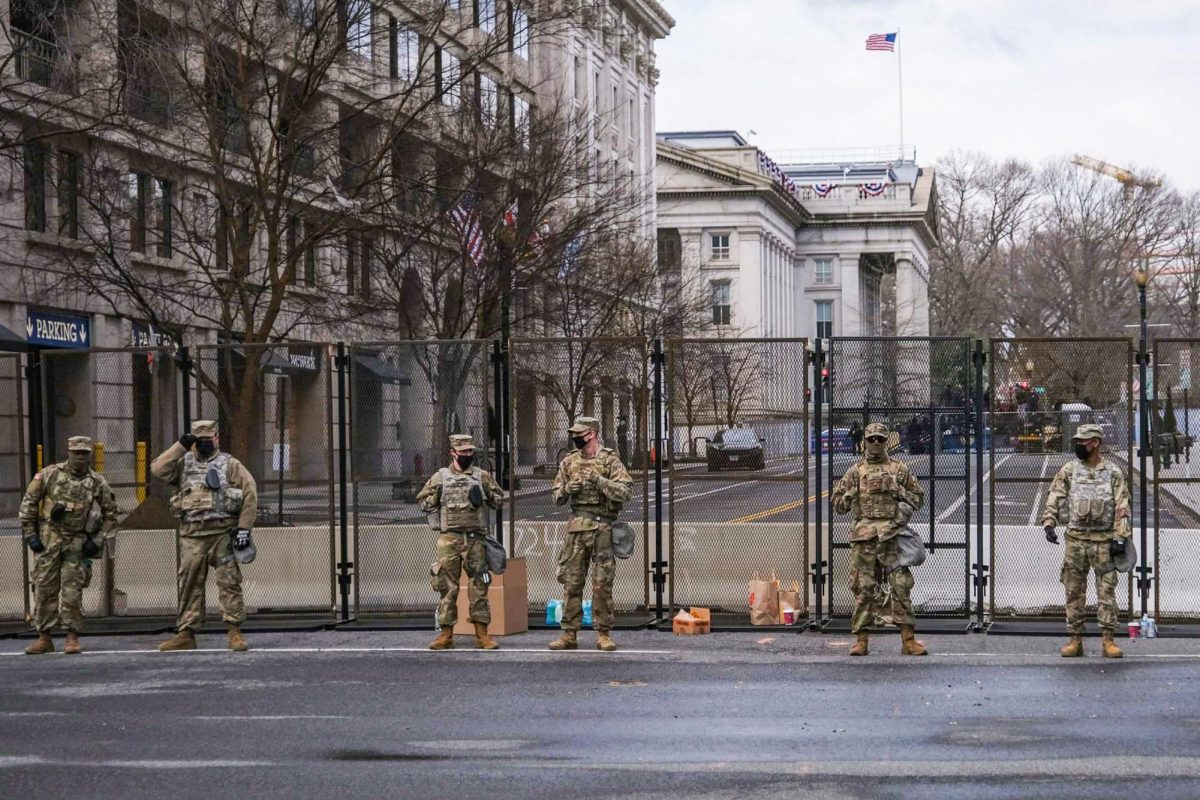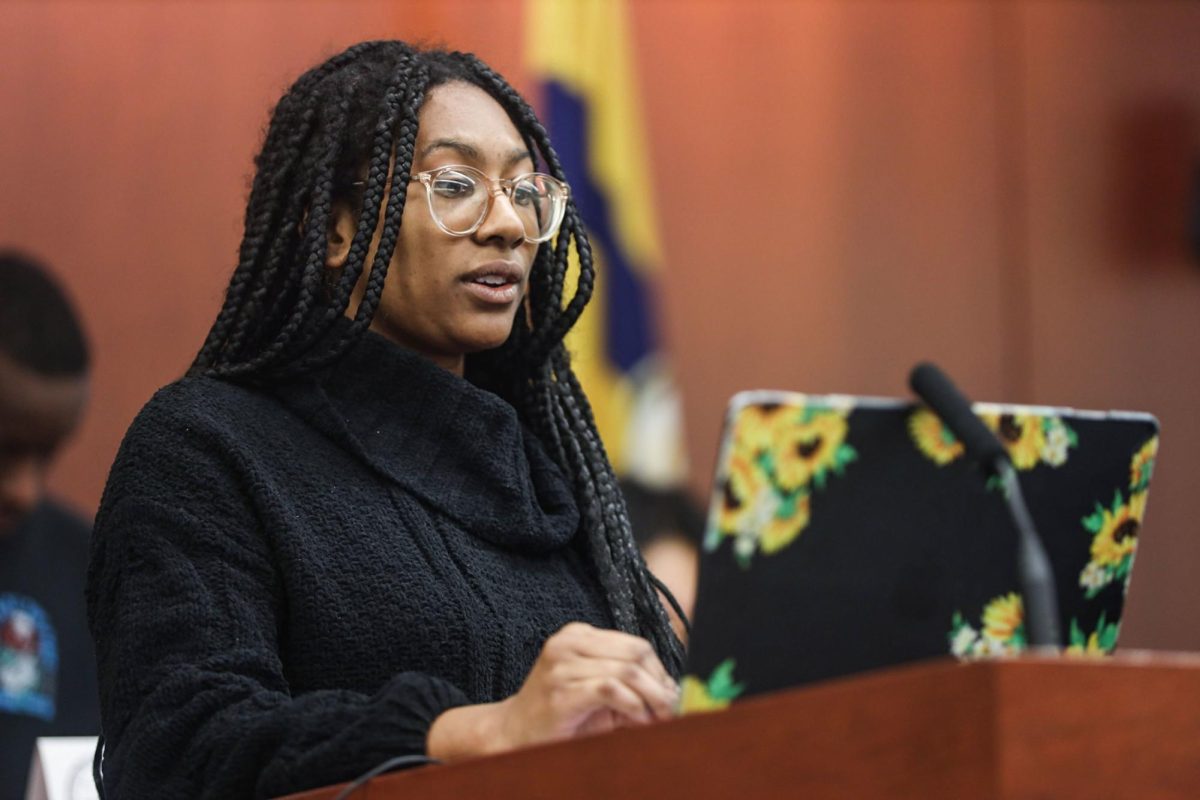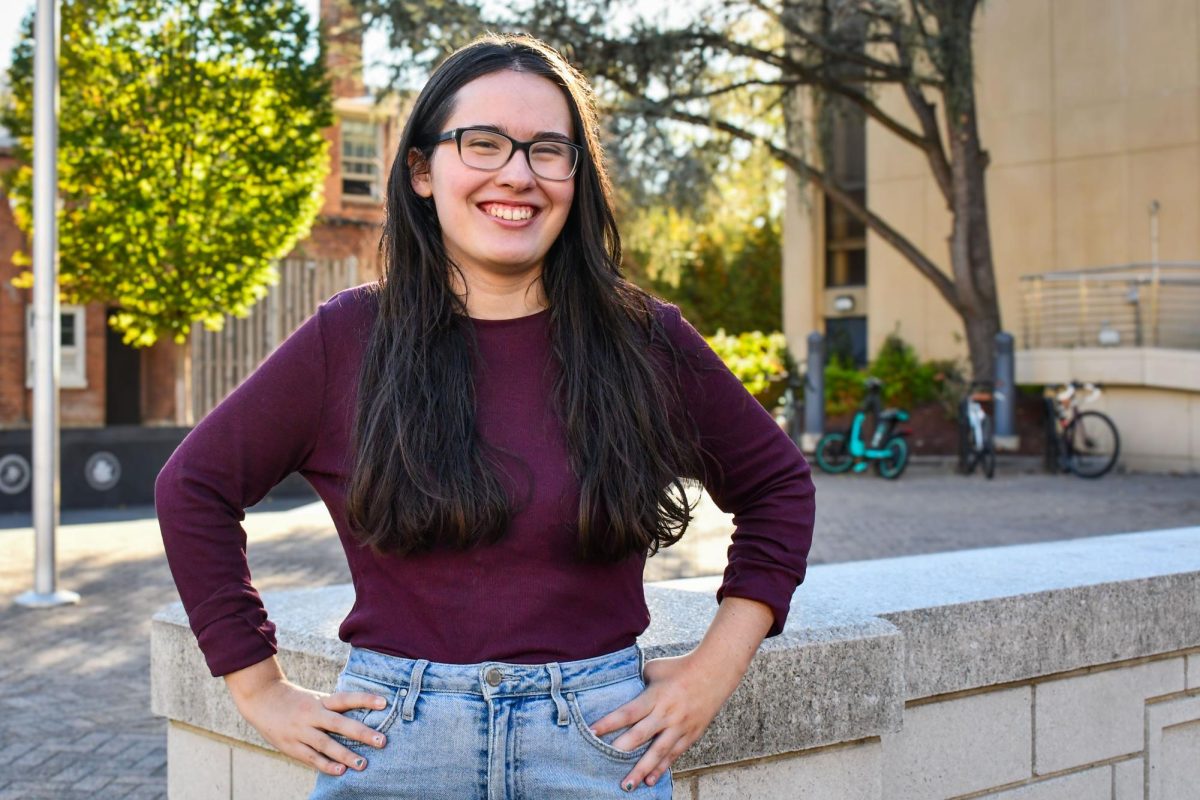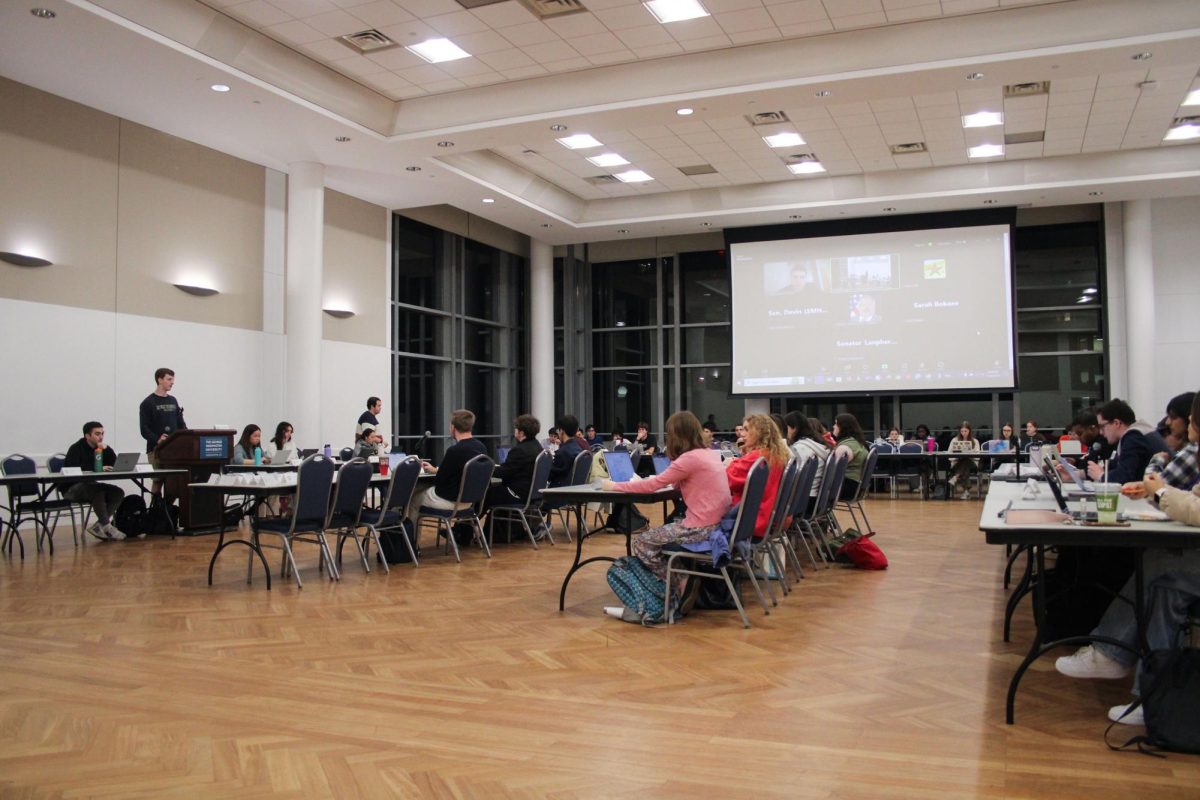The president of Students for Indigenous and Native American Rights is launching her campaign for the Student Association presidency.
Sophomore Georgie Britcher said she will draw on her experiences advocating for indigenous students when running for and serving in the presidential position. If elected, Britcher said she will create director positions on the SA to focus on providing students with efficient financial aid processes and create a council of student organization leaders to encourage collaboration and communication among groups.
“Throughout my time at GW, I know what it’s like to not have my voice heard here, and I want to ensure the other students at this campus can have their voice heard through the Student Association,” she said. “I know that there are student leaders willing to hold our GW community accountable and can also advocate for different communities on campus to make sure that they feel protected.”
Britcher helped create a bias incident survey released in response to an “inappropriate” comment University President Thomas LeBlanc made earlier this month and pioneered the University’s Native American Heritage Month as SINAR president in November.
Britcher must garner at least 500 signatures to qualify as a candidate, and the Joint Elections Commission, which oversees the race, must approve her as a candidate. Candidates are required to file their candidacy statement and petition between Feb. 15 and Feb. 22, the JEC website states.
Britcher is one of three people who have launched bids for the SA presidency so far.
In her year and a half on campus, Britcher has worked as a residential adviser and a senior policy adviser for SA President SJ Matthews. She said she served as a student leader in the SA’s diversity and inclusion assembly last spring and as the organization’s director for diversity and inclusion last summer.
Britcher said she has consistently spoken with Jordan West, the diversity and inclusion education director, about how to hold faculty and administration accountable for their actions, like the bias incident survey.
She said she would create a SA Vice President for Financial Advocacy to act as a “liaison” between students and offices like the Office of Financial Assistance. Britcher said she will speak to financial aid officials to discuss the feasibility of the vice president positions and how to foster more conversations about financial aid between students and officials.
The Office of Student Financial Assistance announced several changes last year, assigning students to individual advisers and rolling out a 24/7 chatbot. Officials also said they would launch a financial aid student advisory council to gather student feedback about the office, and the council is in the “final stages” of forming.
“This is something that the SA president has power to do to ensure that students can have a resource and this is something that I would be able to attain, to efficiently and effectively do, that is very attainable,” she said.
She said she has struggled with affordability since coming to GW and spent last semester meeting with financial aid officials about whether she would be able to return to campus this spring. Britcher said she wants to ensure that students do not have to endure similar challenges.
“That is a basic right that we should all have at this University,” she said. “We shouldn’t have to be uncomfortable in a place we should call home.”
Britcher added that she has spoken with Colette Coleman, the associate dean of students, and Cissy Petty, the vice president for student affairs and dean of students, about creating an RA affairs directorship to ensure RA’s voices are well established on the SA. She said she’s learned in her position as an RA this academic year that communication between the Center of Living and Learning Engagement administrators and students is lacking.
Britcher added that she plans to establish a multicultural student organization council comprised of representatives from several student groups to collaborate on events or fundraisers. She said the Organization of Latino American Students and the Transgender and Non-Binary Students of GW have expressed interest in participating in the council.
She said the council will allow both more “established” and smaller organizations to work together on organizing events, navigating fundraising strategies and exchanging tips on working with the SA and officials.
“This is not some grandiose, brand new idea,” Britcher said. “This has been something that’s been in conversations for a while around the student body.”
Britcher said student organizations play a dominant role in establishing a community on campus, and the SA should not be the only group that is responsible for bringing students together.
“That’s something that’s really important to me – advocate for students orgs,” she said. “Because I believe they’re one of the most important parts of our campus and making sure they have a voice and they have the resources to effectively work for their community.”


